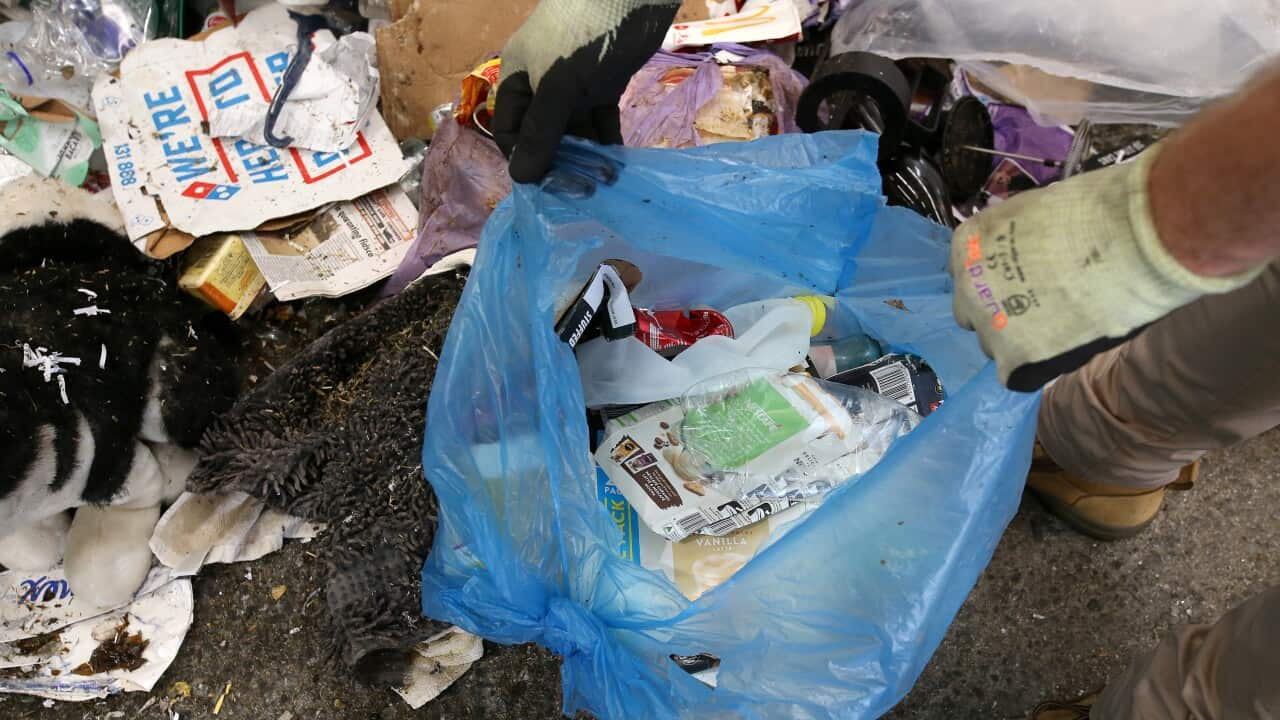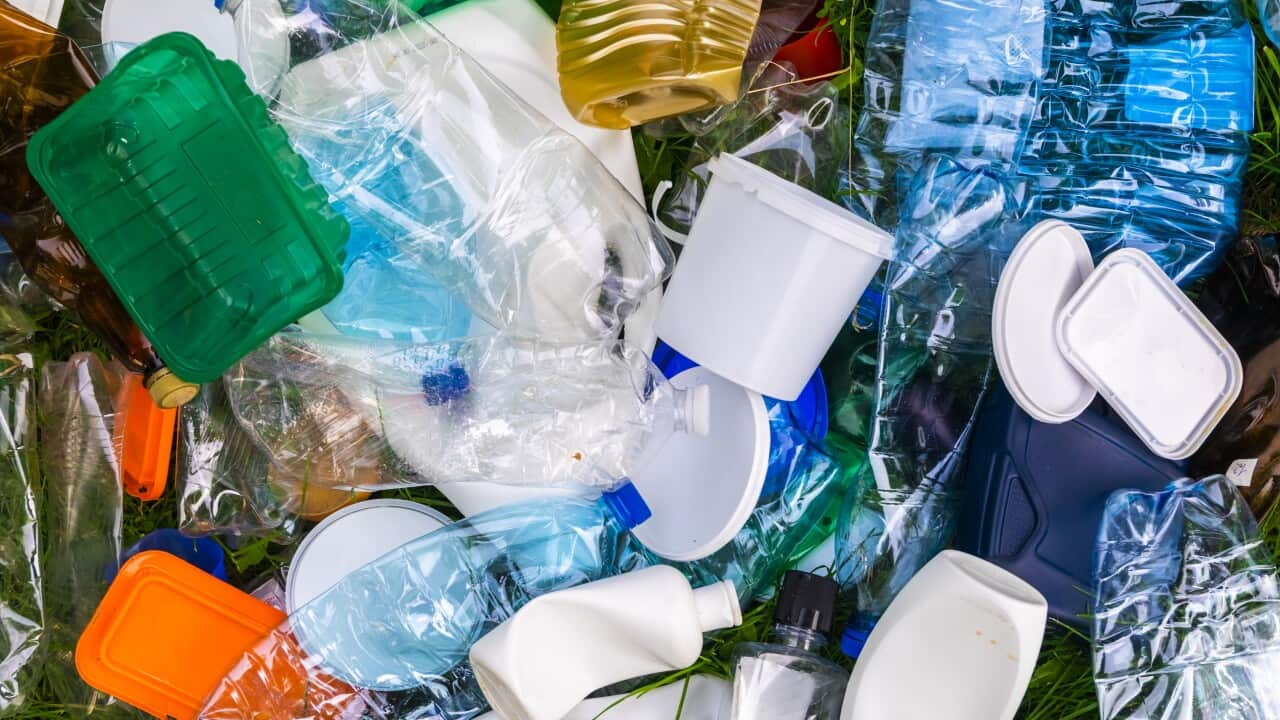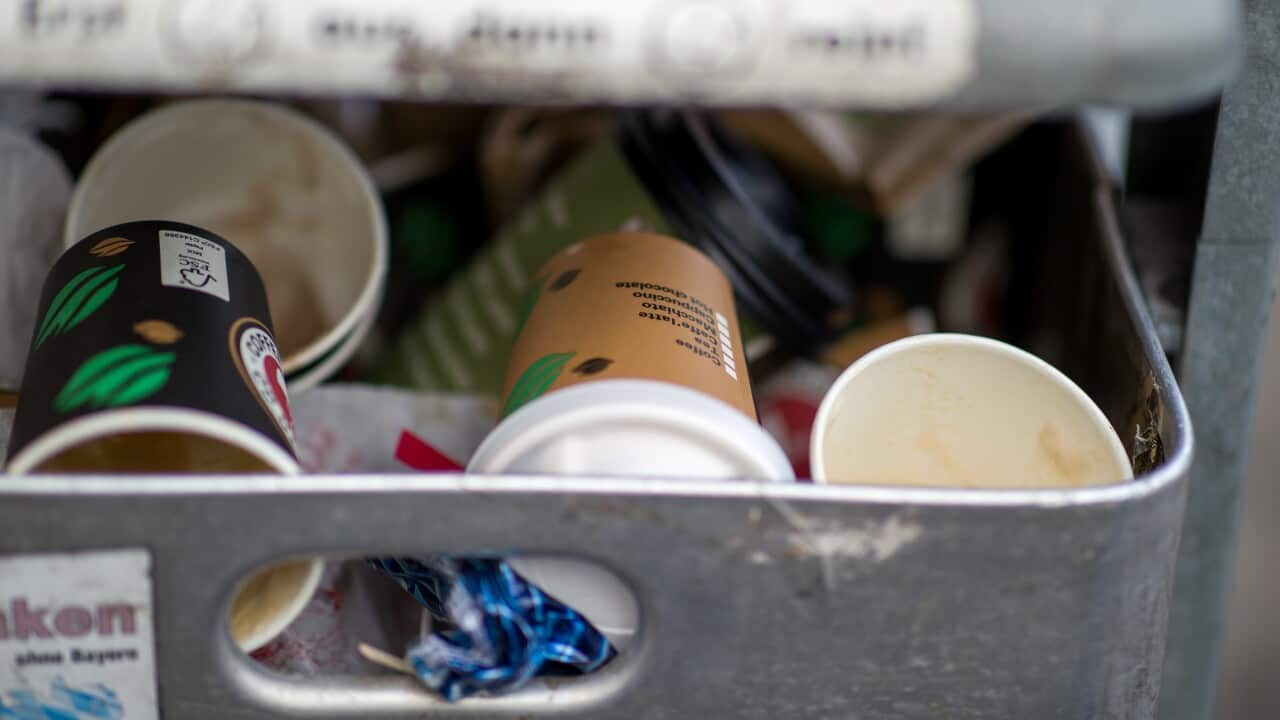Key Points
- Of the 366,144 pieces of rubbish picked up by the volunteers last year, 63 per cent was plastic of some sort.
- That's up 17 per cent on 2021, and has been driven by a rise in finds of soft plastic, hard plastic and polystyrene.
- The top 10 was rounded out chips, lolly bags, bottle caps, and face masks which counted for the first time.
About two-thirds of the rubbish volunteers plucked from the environment last year was plastic, a jump of almost 20 per cent in one year, a new report shows.
Clean Up Australia has released its National Rubbish Report for 2022, a snapshot of the types of waste contaminating ecosystems nationwide.
Of the 366,144 pieces of rubbish picked up by the organisation's volunteers last year, 63 per cent was plastic of some sort according to the report released on Thursday.
That's up 17 per cent in 2021 and has been driven by a rise in finds of soft plastic, hard plastic and polystyrene.
In terms of the number of individual items found, soft plastics topped the list at 18 per cent, followed by cigarette butts at 14 per cent.
Then came single-use plastic bottles, takeaway food containers, drink cans, and pieces of glass and plastic packaging at five or six per cent each.
The top 10 was rounded out chips and lolly bags at four per cent, and bottle caps and lids at 3 per cent, and face masks - counted for the first time in this report - also at 3 per cent.
Volunteers found about one-third of what they recovered on roadsides and footpaths, one-third in waterways and 20 per cent in parks.
Clean Up Australia chair Pip Kiernan says the report reflects consumption trends, and that makes the increase in plastic rubbish a serious concern.
She said the pandemic seems to have undone some of the good habits people had adopted, like using refillable water bottles and coffee cups.
But Ms Kiernan said it's time to get back to those small changes everyone can make on a daily basis to reduce plastic and other waste streams.
"We often say we don't want a few people doing zero waste perfectly. We want millions of people doing it imperfectly because collectively that can have a big impact," she said.
"It has a massive impact, as does voting with your wallet and rewarding brands that are using recycled content, or doing their packaging more responsibly. Don't underestimate the power of individual action. We can continue to move the dial."












